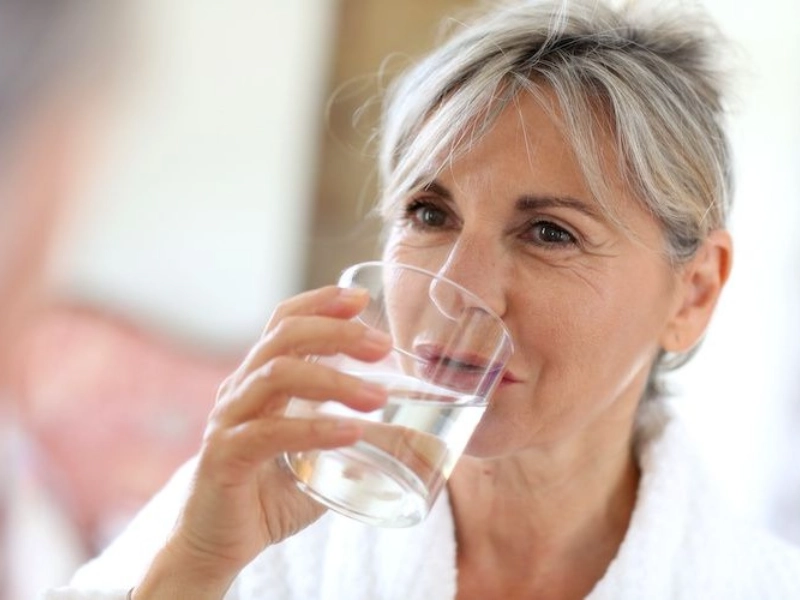Advertisement
7. Debunking Hydration Myths: Separating Fact from Fiction

In our search for ideal health, water has evolved into a subject full of false ideas and misunderstandings. Let's examine some typical hydration misconceptions closely and clear the record with empirical data.
Myth 1: "You're already dehydrated if you're thirsty."
Although thirst is a clue your body needs water, it does not always indicate you are clinically dehydrated. Your body's early warning system, thirst is meant to make you drink before you get quite dehydrated. Not an indication of a water crisis, mild thirst is a normal and healthy body process.
Myth 2: "Drinking ice-cold water burns more calories."
This fallacy originates from the concept that your body has to use energy to warm the cold water to body temperature. Although theoretically accurate, the impact is negligible; you might burn a few additional calories but not enough to noticeably affect weight reduction. Decide on your water temperature depending on taste rather than calorie-burning power.
Myth 3: "You can't drink too much water."
Although it's rare, drinking too much water might cause a disease known as hyponatremia, in which case your blood's salt levels become diluted. Endurance athletes that overhydrate during events most often exhibit this. Although most people find the kidneys to be quite efficient in eliminating extra water, it's still vital to pay attention to your body and avoid pushing too much fluid consumption.
Myth 4: "Caffeine is dehydrating".
As was already noted, although caffeine has a modest diuretic impact, caffeinated drinks like tea and coffee do help to meet daily fluid consumption. Regular drinkers of these beverages do not become dehydrated from little intake.
Myth 5: "For any exercise you need sports drinks."
Water is plenty for most persons doing moderate activity less than an hour. Sports drinks are meant for lengthy, vigourous exercise where electrolyte replacement becomes essential. Usually all you need for regular workouts is plain water.
Myth 6: "A sign of optimal hydration is clear urine."
Although pale yellow pee usually shows healthy hydration, absolutely clear urine could point to you drinking more water than your body requires. Extremely frequent clear urination could cause important electrolytes to be lost.
Myth 7: "Drinking water with meals dilues stomach acid and impairs digestion."
Not one piece of scientific data supports this assertion. Actually, drinking water with meals helps break down food and reduces constipation, therefore facilitating digestion. Drinking water with your meals is rather normal unless recommended differently by a healthcare practitioner for a particular medical issue.
Myth 8: "You have to 'pre-hydrate' by drinking lots before exercise."
Although starting exercise well-hydrated is crucial, overdoing it is not necessary. Too much immediately before exercise can cause discomfort and call for restroom breaks during your workout. Instead keep constant hydrated all day.
Myth 9: "Bottled water always tastes better than tap water."
In many developed nations, tap water is absolutely safe to drink and maintained to exact safety requirements. Actually some bottled water is just filtered tap water. Tap water is a cheap and eco-friendly hydration source unless there are known problems with your neighbourhood water system.
Myth 10: "You should drink a gallon of water a day."
This returns to the myth of a universal hydration norm. As we have covered, people's and situations' hydration demands differ tremendously. Not required and possibly dangerous is making yourself drink a certain big volume of water.
By dispelling these misconceptions, we can approach hydration from a more balanced, scientific, standpoint. Recall, the human body has complex systems for preserving fluid balance. Most healthy people find staying hydrated to be a straightforward matter of listening to their body, drinking when they're thirsty, and being aware of events that can raise their fluid demands.
In essence, health and well-being depend on appropriate hydration; it is not necessary to complicate matters. Understanding the physics underlying hydration, realising your own needs, and using doable tactics will help you to keep ideal hydration free from false ideas or unwarranted regulations. Your body will appreciate you for it; keep educated, pay attention to your body, and sip.
